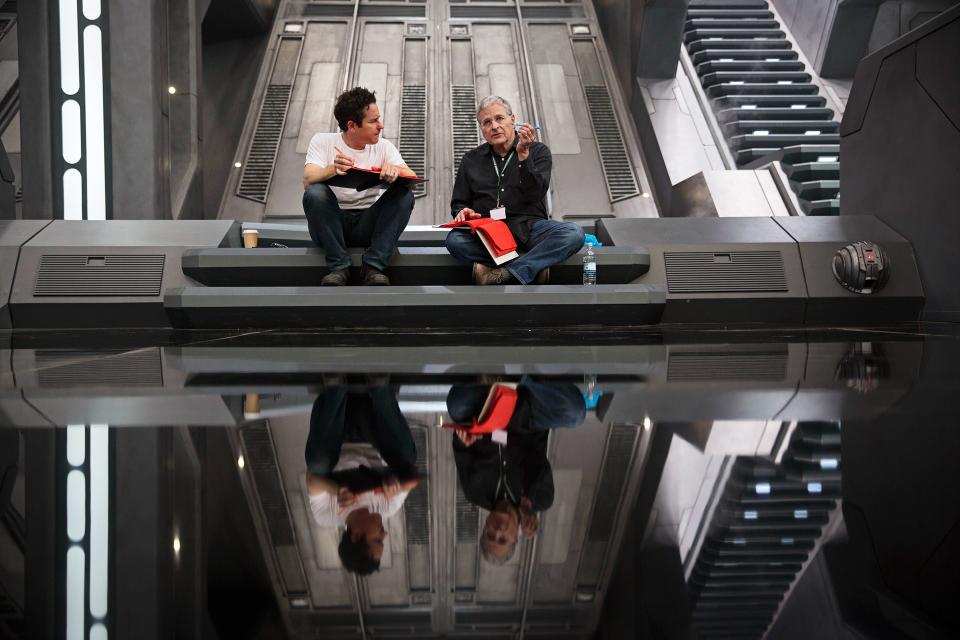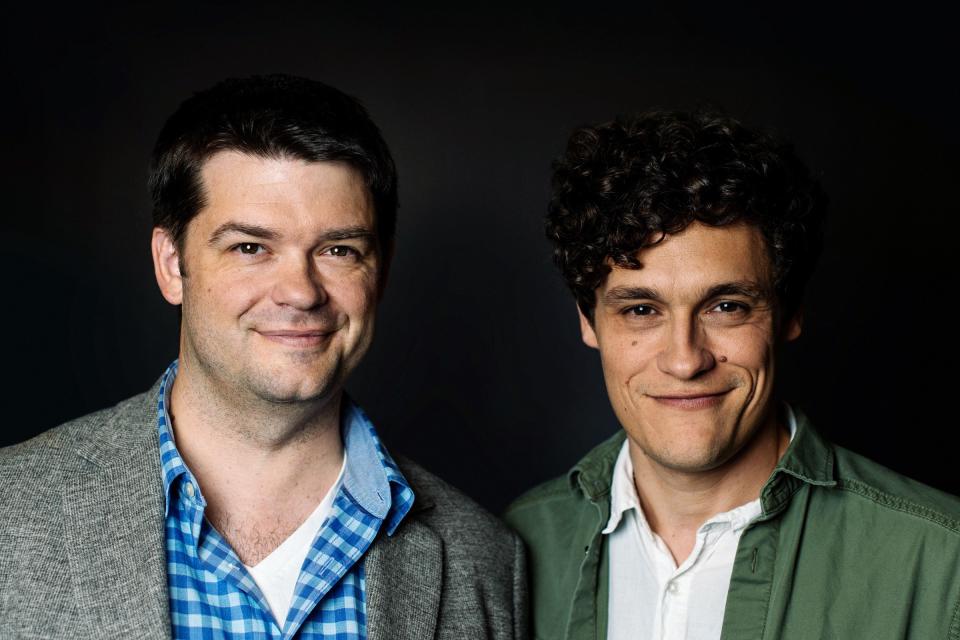Being a Star Wars Director Is the Worst Job in the Galaxy
The Star Wars movies have always been pretty joyless. Not for us laser-brained viewers, of course—we get to happily lose ourselves in big-screen Gravitrons like A New Hope or Return of the Jedi multiple times, and with complete laugh-it-up obliviousness. But the history of the 40-year-old franchise has proved that trying to actually make one of these things puts the "ugh" in Ugnaught: The team behind The Empire Strikes Back, for example, underwent off-screen accidents, near-bankruptcy, and a screenwriter's death. The Phantom Menace and A New Hope, meanwhile, were both leveled by vicious sandstorms. And production on The Force Awakens was halted when a piece of the Millennium Falcon tried to take out Harrison Ford. If you want an idea of just how un-fun Star Wars moviemaking can be, try to find a picture of George Lucas smiling between the years 1977 and 2005. Most of the time, he looks like he’d rather be dusting crops, boy.
Movies
Kasdan wrote Empire, Jedi,, Force Awakens, and the new Han Solo movie. He's the voice of 1980s and 1990s cinema. And he's very cool.
Theme Parks
The company owns so many universes that, as D23 Expo shows, its theme-park adaptation options may never end.
Movies
With Phil Lord and Christopher Miller leaving the young Han Solo movie, one thing is clear: Star Wars is officially too big to direct.
So maybe Colin Trevorrow lucked out. Lucasfilm announced today that it is parting ways with the Jurassic World director, who was set to lead the charge on Episode IX. "Colin has been a wonderful collaborator throughout the development process, but we have all come to the conclusion that our visions for the project differ," the company said in a statement, which is so stiff, it could have been ghostwritten by Lucas himself. That means Trevorrow now joins a growing list of People Who Almost Directed a Star Wars Movie Recently, alongside Chronicle’s Josh Trank (who was removed from one of the standalone prequels) and The Lego Movie’s Phil Lord and Chris Miller, who departed next year’s Han Solo prequel during production (the team was replaced by Ron Howard; it’s not yet clear if all three filmmakers' names will wind up on the movie, or if Howard will get Solo credit).
Young filmmakers have long seen a Star Wars movie as a career-apexing fantasy; who among us didn't hunker down in 1991 with a VHS camera and a few Kenner figures, dreaming of making his or her very own Bossk biopic? But the no-hope truth is that the big-budget, large-appetite Star Wars productions inevitably become nightmarish— so much so that, even the directors who do wind up surviving the experience wind up contracting some Bacta-worthy battle scars. Jedi’s Richard Marquand had to deal with George Lucas looking over his shoulder at least 1,138 times a day. Rogue One’s Gareth Edwards was forced to undergo a last-minute rejiggering that involved an expensive, and almost entirely brand new, third act. And J.J. Abrams was forced to work around not only Ford’s injury, but also his own broken back. Episode VIII's Rian Johnson seems to have loved making that movie, but he’s the exception here. I'd bet that if the ghost of Irvin Kershner could talk, even that genial helmer would find time to complain about schlepping all the way to the Dagobah set, only to find out the Yoda puppet had hypothermia that day.
That’s even more true now, when you consider the corporate-pleasing demands placed upon anyone entering the Star Wars galaxy. In the decades before Lucas sold his company to Disney, he was, for better or worse, the head of the Jedi council—he could make a new Star Wars movie whenever he felt like it, and finance it independently, without answering to a higher power, or worrying about the calendar (he sat down to write Phantom Menace in 1994, five years before the movie was released). He probably wanted to fire himself at times, but at least he had final say over every element of production.
But that was a long time ago. The modern Star Wars universe is run with the same streamlined, steamrolling efficiency of the Marvel universe: Movie dates are announced years in advance; individual story lines are fashioned around predetermined mega-arcs; licensees and merchandisers are considered major creative partners, not just people who make Kylo Ren pajamas. Making movies has always been a slog, and working for corporations has always been a drag, and the Star Wars movies are as corporate as modern filmmaking gets. Trevorrow’s parting is no doubt a bummer, but he may have wound up avoiding countless on-set fiascos. In three months, he could have been in a back room at Pinewood Studios, trying to rejigger his second act while signing off on Jedi-robe swatches for some Target rep. (Plus, he can comfort himself in the knowledge that, post-Jurassic, he can still make whatever movie he wants next. The sun will come out, Trevorrow!)
Still, his parting means there's suddenly a need for a new Star Wars director—ideally, someone who knows the universe, could easily be bent to Disney's will, and could be had for cheap. The internet is already an asteroid field of fan-beloved names, but could I suggest a left-field choice? He's a life-long fan, for starters, and he'd be very willing to dig up a fourth-generation copy of a little-seen gem called Bossk to the Future...



